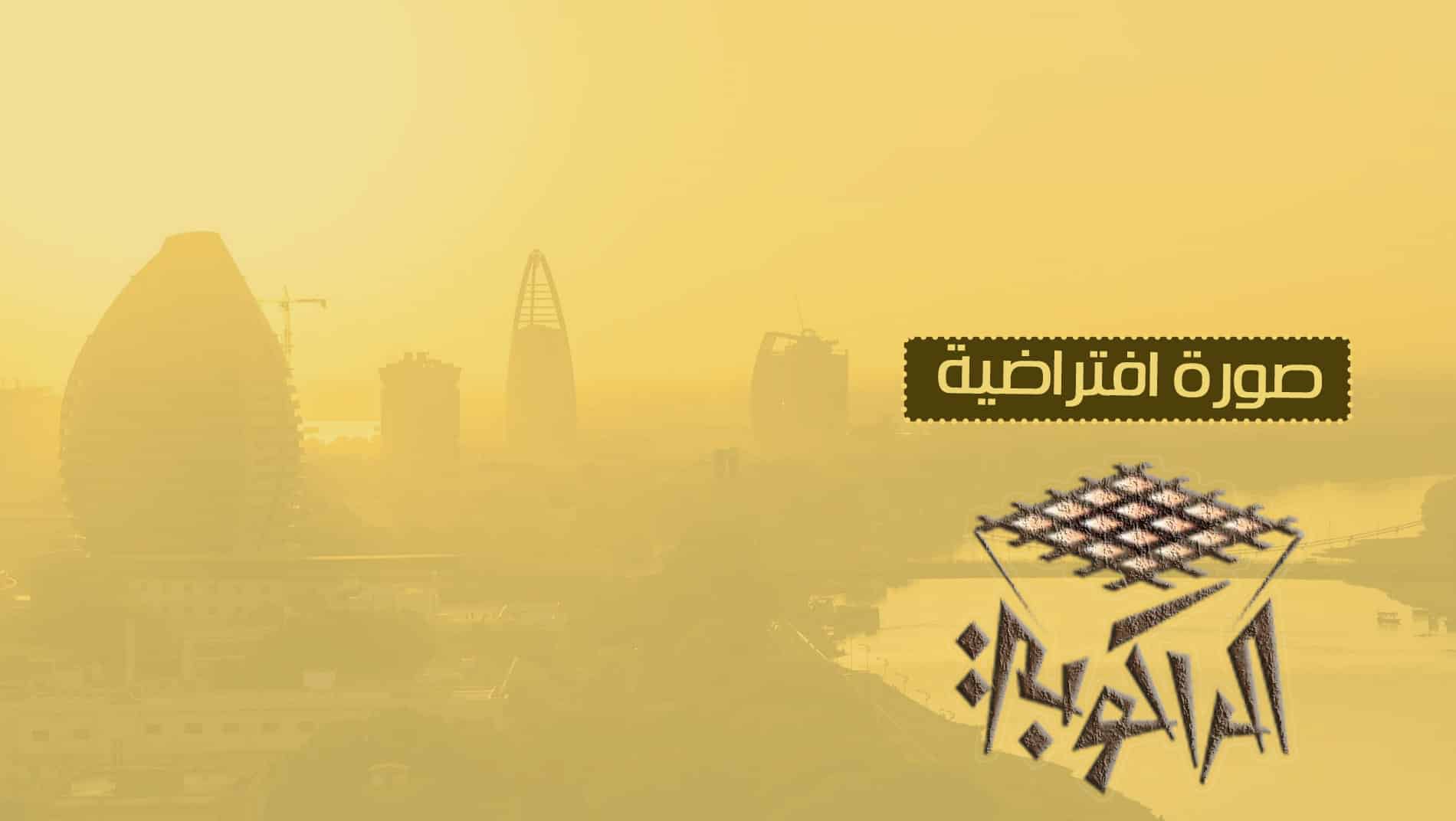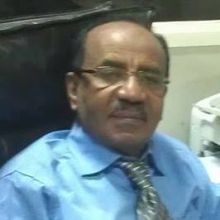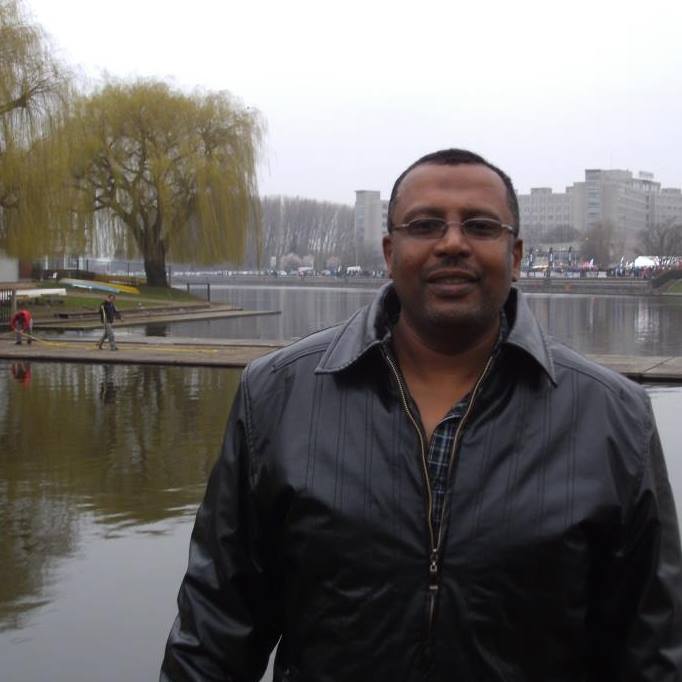ماجد بوب عن جوزيف قرنق: ما كتب عن محبة

بعث لي المرحوم عبد الماجد بوب هذه المقالة عن رفيقنا المرحوم جوزيف قرنق (جو) القيادي الشيوعي الذي أعدمه نظام الرئيس النميري بعد فشل انقلاب 19 يوليو 1971. وهي بعض كتابه الذي كان يعده عن الرفيق القتيل قبل أن يدركه الموت. وطمأنني قريب من ماجد أن للكتاب عن جو أسبقية في نشر تراث الزميل الراحل. ورغبت أن أشرك محبي ماجد في مناسبة تأبينه المنعقد بكاليفورنيا والقراء في قراءة هذا النص. ومن تطوع بتعريبه لفائدة قراء أوسع استحق الشكر للتعريف بالزميلين نذرا نفسيهما لقضية الطبقة العاملة والوطن.
|
|
salamat
Abdel Ali Bob
Tue 12/29/2015, 11:14 PMIbrahim, Abdullahi A.
Joseph Garang: The Transcendental
Joseph U. Garang?s illustrious life came to an abrupt ending on July 28, 1971. He was one of a score of leftist army officers and civilian who had been hurriedly tried and executed. Joseph was accused of conspiring and staging a short-lived coup against the government of General Gafaar Numeiri. He was the first Southern Sudanese to join the faculty of law, University of Khartoum. That?s when he joined the Sudanese Communist Party (SCP) and in 1956 he was elected as member of the Party?s central committee. Joseph became a prominent attorney and in the wake of Numeiri?s coup (May 25, 1969) he served as minister of Southern affairs. At the time of his execution in his mid-forties, he was a member of the SCP political bureau. Abel Alier, a prominent Southern Sudanese political leader, in his own right, described the trial of Joseph Garang and his colleagues as ?a mockery of justice that never will be erased from the annals of Sudanese juries prudence.1 ? Mohamed A. Mahjoub, a former prime minister, wrote that the trial was a ?charade?. 2
Joseph Garang?s political contribution was not adequately appreciated by his Southern intellectual contemporaries, neither was he accepted by Northern adversaries. Southerners unfairly considered him a ?sell out? for the North. Governments in Northern Sudan hated him because he was communist. Joseph was kept under house arrest in his home town, Wau. Even during his study at the University of Khartoum Joseph used to spend summer vacations in Wau. The Catholic priests in town hated to see him and to watch his influence on the Southern youth. In one incident as Joseph was returning to Khartoum a Catholic priest produced a drawing which shows the young student grouching on board an aircraft while a donkey was barking in his direction. Ironically, in 1957 the Catholic Church in Wau solicited his legal council to defend itself in court. Dr. Khalid H. Eltom who witnessed this development stated that Joseph readily accepted the request of the Catholic Church and offered his service without charging them. Joseph told members of the British Parliament (1970) that he was Catholic and that he was continuously reminiscent that he was baptized as a Catholic.
Joseph Garang was presumably born in 1925 (?) a couple of hundred km away from Wau. He descended from a prominent family that belonged to a branch of the Fertit tribe. From his mother?s side Joseph?s family descended from a lineage of chieftains.
Joseph was the second among three brothers. His older brother Franco Garang joined the University of Khartoum but soon after he changed his mind and decided to joining the military college in Omdurman. His younger brother died in his prime of life. He had a sister named Abio Garang. She was married to A. Mkwanj who became chief of the tribe.
Joseph went to school in Busry, a small town approximately 140Km away from Wau. Subsequently, he joined Rumbek Secondary School, one of a two secondary schools in the three Southern Sudan provinces. That?s where he met the first breed of future Southern political leaders, e.g. Hilary Logali, Abel Alier, Tertisio Ahmed. In his memoirs, Justice Abel Alier wrote the following about Joseph Garang, ??????..
Joseph Garang entered the faculty of law at UK. A year later, he was followed by Abel Alier, Natali Alwak, and Samuel Lopi. This group constituted the core of Southern Sudanese student?s Front. In the main, they rallied behind the leadership of the Southern Party which was later renamed into Liberal Party. Joseph was prominent in the Southern Students? groups at U.K. Yet, politically he began to distance himself from the nascent Southern Liberal Party, which was formed in 1953 under the leadership of Buth Dieu, Benjamin Luki and Abdelrahman Sule. The Southern Liberal Party was an umbrella organization which united Southern nationalist whose positions vacillated between the demand for a federal system and outright separation from the Northern Sudan. Federalism, mistakenly, was viewed by the largest Northern political parties, the National Unionist Party (N.U.P.) and the Umma Party (U.P.) as pretext for secession. However, these were not the only voices representing Northern public opinion. The leader of the Republican Brotherhood, Mahmoud M. Taha promulgated a political program (1951) in which he called for granting the Southern Sudan provinces a federal form of government. Taha did not waiver in his advocacy for a federal system until his public execution by General Numeiri in January 1983. The Anti-Colonial Front, on the other hand, issued a statement in 1954 in which it suggested granting an autonomous status on the Southern Sudan provinces and other national minorities should they pursue such a demand. Prime Minister Ismail Alazhary vehemently rejected the demand of national minorities , particularly in the Southern Sudan provinces. He assumed federalism or regional autonomy might lead to argued against any form of devolution might lead to disintegration in of Sudan. ?We have gained our independence as one country and it shall be our sacred duty to keep it as one.?
In October 1954, the Liberal Party held its first conference which was meant as anti-dote to the ?Juba Conference 1947?. While the Juba Conference clearly endorsed a proposal to keep the Southern provinces as part of a unified Sudan, the Liberal Party?s conference did not recognize the notion of unity it put forward two options for the future of North-South relations (1) a federal system (2) secession. An insignificant group suggested a form of unity between the Southern Sudan and Egypt. However, the overwhelming majority of delegated voted for a federal system of government between North and South Sudan.
In response to the resolutions of the Liberal Party?s conference, Joseph Garang and a small group of progressive Southern students held a separate conference at the government Employees club in the city of Wau. Fellow students at U.K., Terticio Ahmad and Donato Mabior were instrumental in the organizing this conference. The group adopted a demand for regional autonomy for the three Southern provinces within a united Sudan for. This position was gradually gaining ground among moderate Southern MPs such as Bolin Alier, Colonel Franco Garang????????.
As a cover for his communist activities in Wau, Joseph and some of his comrades and others among them accountant Siddig Hamad and electric engineer Arbab Saeed Alarabi and medical doctor Khalid H. Eltom formed the Bahr Elghazal Social Services Society (BSSS). Major of police in Juba, Hassan M. Salih, secretly supported the group. Medical employee, Bona Malual who subsequently became secretary of the Southern Front Party was a member of this group. This organization provided a covert platform for communist activities in Wau city. One of its main objectives was to promote cooperation between Southern and Northern Sudanese. According to Khalid H. Eltom the organ of the SCP, Almidan used to distribute widely in Bahr Elgazal province. They BSSS formed a soccer team and engaged in other cultural and social activities. At the same time, the group supported the Southern Sudanese Welfare Committee which was primarily fighting for equal pay for Southern Sudanese performing similar jobs as their Northern counterparts. The Catholic Church viewed with enormous mistrust these activities and continued to harass Joseph Garang whenever he was in Wau.
Notwithstanding, in 1957 Joseph Garang joined a team a group of lawyers led by Mubarek Zaroug, Ali M. and Ahmed Suliman, , as part of a defense team representing Dr. Hamdi, provincial health inspector, and accountant Ali Arbab who were charged with embezzlement of government?s money. The trial was presided over by Chief Justice Mohammed A. Abu Ranat. Joseph Garang found opportunity to forge close relationship with Abu Renat. According to Khalid Eltom, Abu Renat and Joseph struck a cordial relationship. The Chief Justice invited Joseph Garang to join the justice administration with a promise to put him in charge of presiding over the three Southern provinces legal system. Joseph declined the lucrative offer knowing that it would hamper his political activities. On a different occasion, the Catholic Church in Wau asked Joseph to represent them in a civil law suit. He complied to their request and took up the case for no charge.
Sudan?s pass to independence was bloodless and relatively swift. Northern political parties and their Southern counterparts reached a historical compromise when the later were promised to have their demand for a federal system of government seriously considered. This pledge by Northern political parties was never honored. Southern Sudanese suspicion of being cheated by Northern parties was strengthened when the later embarked on a draft Constitution based on the tenets of Islamic Shariaa (jurisprudence).
Understandably, non-Muslims in the Southern Sudan and Copts were very vocal in opposition to an Islamic Constitution. Their opposition was justified for fear they might be relegated to second class citizens. However, the most militant opposition was launched by the modern forces led by the Sudanese Communist Party. It is worth mentioning that the move to introduce the Islamic Constitution was led primarily by a myriad of political parties, e.g. the Nationalist Unionist Party, the Umma Party, and the Muslim Brotherhood.
The Islamic draft constitution was adopted and as a result 11 communist MPs were stripped of their membership in parliament. The resolution was legally challenged and the case ended up in the Applet Court under Joseph Garang and others vs. the Sudan government. In one of the brightest rulings the Court considered the resolutions of the Legislative Assembly unconstitutional. Supreme Court judge Salah Hassan ruled that fundamental freedoms are sanctioned by the Constitution and can only altered by a 2/3 majority which was not secured. The Court ruling did not resolve the political crises in the Sudan. A show-down between the liberal and progressive forces on the one and the semi-feudalist and extreme religious forces on the other hand.
On May 25th 1969 a group of middle class officers, supported by a faction of the SCP and pro-Egypt nationalists staged a coup. The official leadership of the SCP gave qualified support to the new regime. Yet, the honeymoon did not last long. The SCP was openly critical of the regime?s on a myriad of policy issues. It was particularly critical of the regime?s hasty move to join a tripartite Unity Scheme between Egypt and Libya. This was the last straw which broke the camel?s back. The SCP was forced to go underground.
Joseph was the only communist who stood by the official line of the SCP. He continued to pursue a peaceful resolution of the conflict between North and Southern Sudan. He met with representatives of the World Council of Churches (WCC) and among other things they agreed to open dialogue between the warring factions in the Sudan. This meeting paved the way for a meeting between the Sudan embassy and the representative of guerilla movement (Nya Nya) in Britain. The face to face meeting in London was sponsored by the left leaning Barbara Hague from the Committee for the Support of the Colonies). As the first contacts were moving faster than the mediators expected, Jeseph came to London to take the the negotiations to a more substantive level. He met one-on-one with the representatives of the Nya Nya movement in Britain and France, Mr. Mading de Garang and Mr. Lorence wol wol. The parties laid down a framework for future talks. Mading de Garang was particularly emphatic in his report to General Lagu. He pointed out that he came to the conclusion that if peace could not reached while the government in Khartoum is still in office, it may never be reached. General Lagu responded positively and so the stage was set for the historic Addis Ababa conference.
The signing of the Addis Ababa Agreement was a significant mile-stone in Sudan?s North-South relationship. Against skeptic predictions by Western press, the negotiators surprised the world by reaching an agreement in a few days. Emperor Haile Selassi, the WCC and the African Council of Churched (ACC) worked together to bring negotiations to a successful conclusion. The Agreement brought immediate fruition as the guns were silenced after 17 years of a senseless and sanguinary civil-war. The three Southern Sudan provinces were accorded self-rule within the Sudan. This was a fulfillment of Joseph?s vision which he stipulated in the 9th of June Declaration (1969). Alas, Joseph?s life was prematurely terminated when he faced execution by hanging for being accused of plotting to topple Nimeiri?s government.
Joseph and fellow comrades Abdel Khaliq Magjoub and Shafie Ahmed Elsheik were unceremonially buried in unmarked graves at Khartoum Bahri?s main cemetery





It would be interesting to see your response to the late (Bob) in that regard, if you ever responded to him! That will reveal a lot about your skewed journey with the SCP and your fallen comrades
أتمنى أن لا تكون هذه المقالة المفيدة نشرت كما هي في هذا الإيميل، فهي هنا غير محررة وتحوى عددا كبيرا من الاخطاء (لغوية/طباعية/حقائقية 【مثلا إعدام م م طه كان 1985 وليس 1983】)
very intellectual piece indeed, may Al Mighty God rest Prof. Abdel Majid Bob soul in eternal peace.
Dear Dr. Adbdualah
Shwgi Elbadri who is indeed an expert in south Sudan affairs and tribes mentioned before the Joesph Garang was from Jur tribe . I would suggest you check this fact as the article mention he is Fertite. and from my humble knowledge about South Sudan, Fertit does not give their kids a name like Garang
thanks